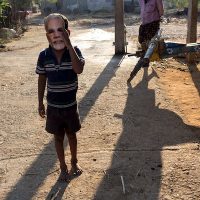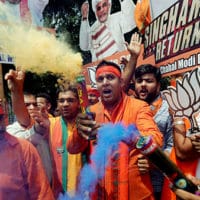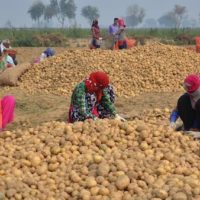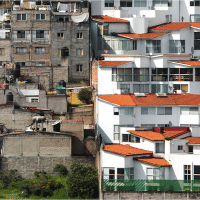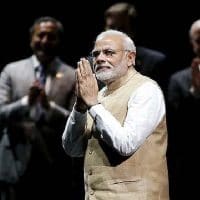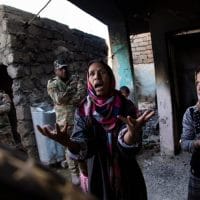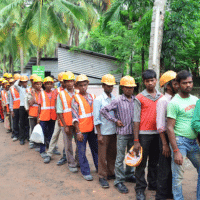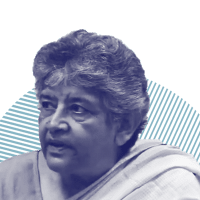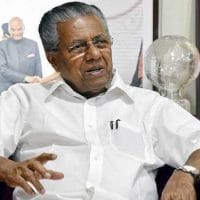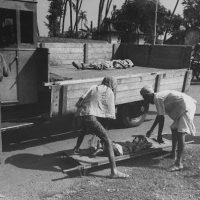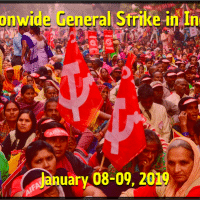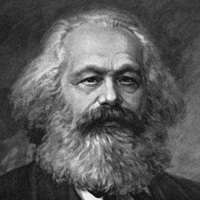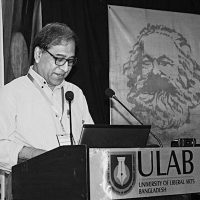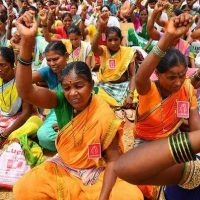-
Marx and the Dutch East India Company
In the final part of Capital, Volume I on “the so-called original accumulation”, Marx gives a dazzling overview of the often violent historical phenomena that contributed to the birth of the capitalist system, “dripping from head to foot, from every pore, with blood and dirt.”
-
Capitalism, populism & crisis of liberalism
In this long interview with Jipson John and Jitheesh P.M., Akeel Bilgrami speaks at length on the concepts of populism, liberalism, fascism, postmodernism and post-truth.
-
India, ideology and the New York Times
Liberals of all stripes ought to, in the years to come, pay careful attention to the way language is deployed in public discourse, to recognize shibboleths and call them out. Neoliberal reforms were smuggled in via this route, and if the exit-polls are to be believed, fascism will be next.
-
As the far-right wins Indian elections, progressive forces vow to resist
The modern global economy, essentially guarantees the continued expatriation of profits and natural assets from resource-rich but capital-poor countries, facilitating the enrichment of the global economic elite and Multinational Corporations (MNC), at the expense of developing countries. To elaborate on the themes of corporate plunder, resource nationalism and people-centered forms of resource management, Tricontinental: Institute for Social Research spoke with Gyekye Tanoh, head of the Political Economy Unit at the Third World Network-Africa based in Accra (Ghana).
-
PepsiCo and Monsanto’s bogus court cases are war on Indian farmers
At the heart of the struggle is capital’s need–Monsanto and Pepsico’s–to continuously enclose spheres and generate surpluses from creating a monopoly over something that it does not actually own.
-
‘Unions must provide political education or labor will find itself more powerless than ever before’—Timir Basu on labor in India
The phenomenal growth of the services sector has created a new generation of employees. For these workers, May Day has very little meaning—what they fail to grasp is that they cannot protect their future without knowing their past.
-
Unequal scenes
Inequalities in our social fabric are oftentimes hidden, and hard to see from ground level. Visual barriers, including the structures themselves, prevent us from seeing the incredible contrasts that exist side by side in our cities.
-
Shadow of fascism
In its attack on civil liberties, its restructuring of the State to effect an acute centralization of power, and its pervasive purveyance of fear, the Modi years resemble Indira Gandhi’s Emergency. But the resemblance stops there. In fact the two differ fundamentally in several ways.
-
The sunrise will be the same for those who wake and those who never will
Disregard by the dominant powers of human lives in places such as Iraq has a long history. It goes back a hundred years.
-
Killing the most beautiful things we own
The fight over the Amazon is not new, but the scale of its potential destruction has considerably increased. The protagonists of the murder of the Amazon are clear: capitalist firms of different scales and the political class that enables them.
-
How economics is serving to camouflage imperialism
The intellectual hegemony of mainstream bourgeois economics, by invariably seeing capitalism as a self-contained closed system, serves to obscure the phenomenon of imperialism.
-
Utsa Patnaik on agrarian history and imperialism
Humanity does not end where Europe ends, or America ends. Lenin’s contribution as well as Rosa Luxembourg’s work are both of inestimable value because they applied the Marxist method to areas that Marx himself had not touched.
-
Constitution is supreme and above all the customs and beliefs: Kerala CM Pinarayi Vijayan
In conversation with the Chief Minister who just completed 1,000 days in office
-
Britain robbed India of $45 trillion & Thence 1.8 billion Indians died from deprivation
Eminent Indian economist Professor Utsa Patnaik (Jawaharlal Nehru University) has estimated that Britain robbed India of $45 trillion between 1765 and 1938, however it is estimated that if India had remained free with 24% of world GDP as in 1700 then its cumulative GDP would have been $232 trillion greater (1700-2003) and $44 trillion greater (1700-1950).
-
Struggles that make the land proud
On 8 and 9 January, over 160 million workers went on strike in India from a broad range of sectors, from industrial workers to health care workers. This has been one of the largest general strikes in the world.
-
Why are 200 million workers on strike in India?
The strike by 10 central trade unions is against a proposal to limit the formation and powers of trade unions, as well as for a minimum wage of Rs. 18,000 and the protection of the public sector.
-
Dossier 12: India’s Communists and the elections of 2019
Ahead of the 2019 elections in India—the largest exercise of electoral democracy in the world–Brinda Karat of the Communist Party of India (Marxist) discusses the current political context in the country and the left-led resistance to the deepening assault on basic human rights led by India’s right-wing.
-
Karl Marx on India: An assessment (Part II)
Marx correlates the decrease of Indian textile exports with the monopoly exerted by British muslins to India and the decimation of the population of Dhaka.
-
Karl Marx on India: An assessment (Part I)
In a Delhi bookshop this October, I came across Karl Marx on India. Edited by Iqbal Husain, former Professor of History at Aligarh Muslim University, and published under the aegis of Aligarh Historians Society by Tulika Books in 2006, the book attracted me too because it contained a long Introduction by the eminent Aligarh historian, Professor Irfan Habib.
-
Legacies crucial for the commons
The 150th birth anniversary year of Mohandas Karamchand Gandhi and the 200th birth anniversary of Karl Marx went by this year. Such anniversaries can become occasions of tokenism—for instance, the Indian government has set up a committee with more than 100 members to coordinate celebrations of Gandhi’s anniversary, crammed with political bigwigs from various parties, a few academics and Gandhian workers.



